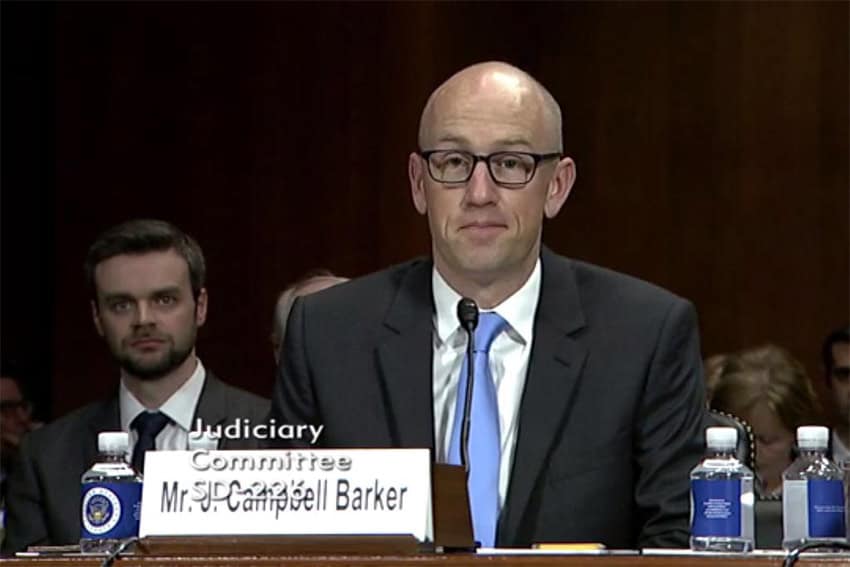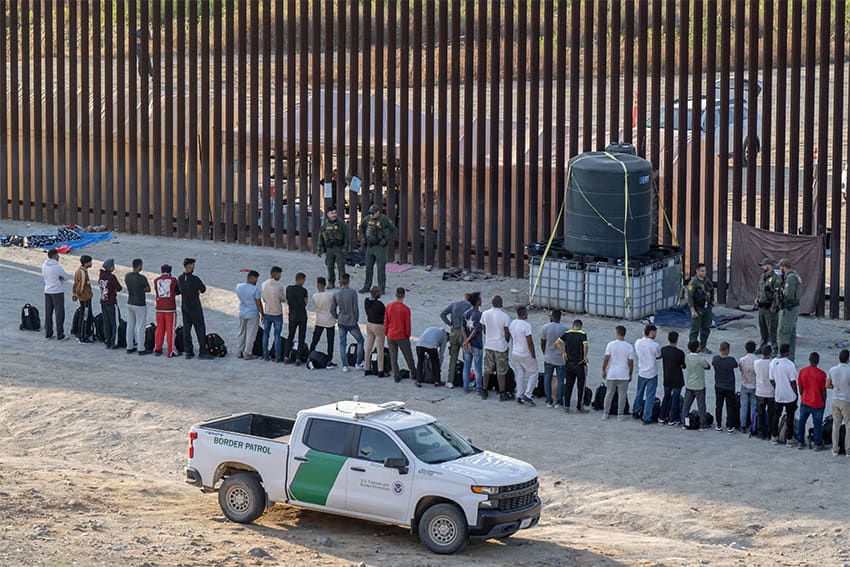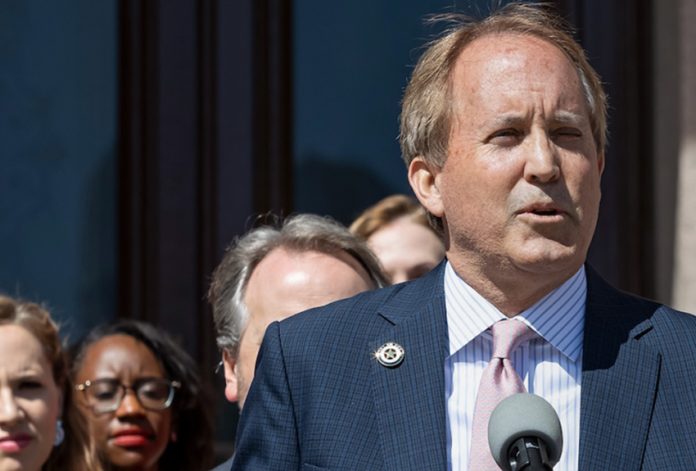A federal court in Texas has handed down a ruling that temporarily suspends a United States government program allowing certain undocumented spouses and children of U.S. citizens to apply for lawful permanent residence in the U.S. without leaving the country.
U.S. President Joe Biden announced the program in June, telling a press conference at the time that “polls show that over 70% of Americans support this effort to keep families together.”
A single district court in Texas ruled that my Administration’s work to keep families together has to stop.
That ruling is wrong.
Families should not be needlessly separated – they should be able to stay together.
My Administration will not stop fighting for them. pic.twitter.com/6T74DYlpoB
— President Biden (@POTUS) August 27, 2024
However, the initiative — which could benefit hundreds of thousands of Mexicans in the U.S. — is not popular among many Republican Party officials, including those in 16 Republican-led states that filed a legal challenge against it.
On Monday — a week after the program began accepting applications on Aug. 19 — Judge J. Campbell Barker of the U.S. District Court for the Eastern District of Texas issued an administrative stay that stops the U.S. government from approving applications to participate in the Keeping Families Together program for two weeks.
The duration of the court order could be extended as the court considers the case.
Barker’s ruling came just one week after the Department of Homeland Security began accepting applications in the program that seeks to benefit some 500,000 undocumented adult noncitizens who have lived in the United States for 10 years, are legally married to a U.S. citizen, don’t have a criminal record and are not considered a security threat.
The cost to apply for the Keeping Families Together program, according to the Department of Homeland Security website, is US $580.
The White House said in June that the program would also protect approximately 50,000 noncitizen children under the age of 21 with a parent married to a U.S. citizen.
The governments of Texas and Idaho — along with attorney generals from 14 states that include Florida, Georgia and Wyoming — filed a lawsuit against the program last Friday. They filed the suit in a court under the jurisdiction of the United States Court of Appeals for the Fifth Circuit, which the Associated Press (AP) described as “a favored venue for advocates pushing conservative arguments.”

The 16 states accused the Biden administration of circumventing Congress and creating the program via executive order for “blatant political purposes” in an election year when illegal immigration is a crucial issue in the contest between Vice President Kamala Harris and former president Donald Trump.
The states specifically challenged the program’s so-called “parole in place” measure, which allows undocumented immigrants to remain in the United States and to apply to work legally before making a formal application for residency, something they must do within three years of being accepted into the Biden administration’s program.
The U.S. government has already had an existing “parole in place” program available to noncitizen family members of active and reserve members and veterans of the U.S. military since 2010 that grants similar benefits — such as the ability to apply for residency from within the U.S., even after having entered the U.S. without authorization, and the right to apply to work legally in the U.S. after being accepted into the program.
Donald Trump’s administration scaled back the program, requiring immigration officials to make decisions on a case-by-case basis, and tried to end it altogether in 2019, a move that was opposed by a group of senators, including then-Senator Kamala Harris.
The states’ current lawsuit argues that the program is illegal, encourages illegal immigration and amounts to an “amnesty” for undocumented immigrants.
The Texas government — led by staunch illegal immigration opponent and outspoken Biden critic Governor Greg Abbott — said in the suit that it has had to pay tens of millions of dollars per year to cover the expenses stemming from the presence of illegal immigrants in the state, including those related to health care and law enforcement.
In a written ruling, Judge Barker said that the claims filed by the 16 states “are substantial and warrant closer consideration than the court has been able to afford to date.”
He laid out a timetable that could lead to a decision just before the Nov. 5 presidential election in the United States or before the new president takes office in January, AP reported. The judge gave both sides until Oct. 10 to file case briefs.
‘We are going to keep fighting for Texas’
Texas Attorney General Ken Paxton acknowledged Barker’s ruling on the X social media platform.
“We have temporarily BLOCKED Biden’s unlawful new ‘parole in place’ program,” he wrote on Monday.
Biden’s unconstitutional scheme would have rewarded over 1 million illegal aliens with the opportunity for citizenship after breaking our country’s laws — and incentivized countless more,” Paxton said.
“This is just the first step. We are going to keep fighting for Texas, our country, and the rule of law,” he added.
In another post, Paxton asserted that “this unlawful scheme is about fast-tracking over 1 million illegal aliens for citizenship and rewarding them with full benefits and voting rights.”
“By federal law, they are NOT ELIGIBLE for parole. That’s why Texas sued,” he said.
The attorney general also contended that the Biden-Harris administration has an “open-borders agenda” that is “destroying this country.”

Illegal border crossings reached new highs during Biden’s presidency, but have declined significantly since the U.S. president enacted a new border policy in June.
‘America is not a country that tears families apart’
President Biden also reacted to the ruling against his Keeping Families Together program.
“America is not a country that tears families apart,” he said in a statement issued by the White House.
“That is why, in June, my Administration announced new action to keep American families together,” Biden said.
“These married couples — in which one spouse is a United States citizen and the other has been living in America for 10 years or more — include our neighbors who have been working, raising their families, paying taxes, worshipping with us and sending their kids to school,” he said.
The president said that “all” he did “was make it possible for these longtime residents to file the paperwork [for residency] here — together with their families.”
The ruling of “a single district court in Texas” is “wrong,” Biden asserted, adding that “these families should not be needlessly separated.”
“They should be able to stay together, and my Administration will not stop fighting for them,” Biden said.
Immigrant advocates decry ‘devastating’ decision
Jessica Cisneros, an attorney for the Texas Immigration Law Council, an advocacy organization, said that the court’s decision to “halt the federal government from providing relief” to undocumented spouses and children of U.S. citizens “is devastating to the thousands of Texas families that could have benefited from this program.”
Karen Tumlin, the director of the Justice Action Center immigrant advocacy organization, called the court order against the Biden administration program an “extreme measure.”

She claimed that Texas “has not been able to provide an iota of evidence” that it would be adversely affected by the program.
“This is heartbreaking for our clients and the thousands of couples who hope to benefit from this process and be able to live without fear that their family will be separated,” Tumlin said.
Rebecca Shi, executive director of the American Business Immigration Coalition, said that “it is bad for the economy and against human decency to prevent people who have been here working and paying taxes, often for more than 20 years, and married to U.S. citizens, from obtaining legal status more quickly.”
Families back ‘in limbo’
Citing two government officials, The New York Times newspaper reported that in just one week, thousands of undocumented U.S. residents filed applications to participate in the Keeping Families Together program.
If they had applied for residency before the program commenced, they would likely have had to leave the United States for an indefinite period while awaiting adjudication. Wait times have sometimes stretched on for years, and undocumented immigrants had no guarantee they would be allowed to return to their lives — and families — in the United States.
One Biden program applicant who has been in the United States since he was an infant told the Times that he “felt both relief and anxiety after years of struggle” when he filed his application last week.
“The Government of Mexico is convinced that both nations must continue to promote openness and a willingness to ensure that there are regular pathways for those who intend to emigrate from their countries of origin, in the understanding that migration today is driven by necessity, and avoiding xenophobic or discriminatory actions at all costs.”
“For years, we’ve been caught in a cycle of legal challenges and financial strain, trying to navigate an immigration system that often seems designed to keep families like mine in limbo,” said 34-year-old Ricardo Ocampo Hernández, a Las Vegas resident who has been married to a U.S. citizen for a decade.
Undocumented immigrants whose applications to participate in the program have already been approved won’t be affected by Monday’s ruling, according to a Department of Homeland Security spokeswoman who emailed a statement to the Times.
However, Judge Barker’s ruling means that undocumented migrants all over the United States — including eligible family members who had not yet been accepted into the Biden program — now don’t know when, or even if, they will be able to apply for residency without facing the risk of lengthy separation from their families.
Mexico’s Foreign Affairs Ministry (SRE) said in June that some 500,000 spouses and 50,000 children of U.S. citizens could benefit from the Biden scheme, and highlighted that “the vast majority” of that number are “Mexican or Mexican-American.”
Roberto Velasco, head of the SRE’s North America department, said that as many as 400,000 Mexicans could obtain permanent residency in the U.S. through the program and eventually become American citizens.
With reports from The Associated Press and The New York Times
